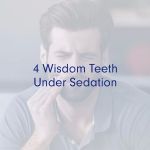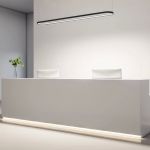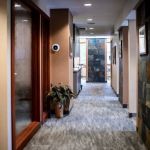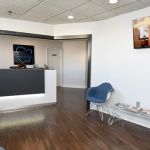1. What Are Dental Appliances for Sleep Apnea?
Sleep apnea is a common disorder that interrupts normal breathing patterns during sleep, leading to fragmented sleep and a host of potential health issues. Dental appliances, also known as oral appliances or mandibular advancement devices (MADs), are a popular treatment option for those suffering from sleep apnea. These devices are custom-made and designed to reposition the jaw to help keep the airway open, reducing snoring and preventing the airway collapse that causes apnea events.
2. How Do Dental Appliances Work for Sleep Apnea?
Dental appliances work by repositioning the lower jaw (mandible) slightly forward. This adjustment helps to prevent the soft tissues in the back of the throat from collapsing and obstructing the airway. The devices are worn during sleep and are designed to be comfortable and non-invasive. Over time, they can help reduce or eliminate the symptoms of sleep apnea, such as loud snoring and interrupted breathing. The design of these appliances may vary, but they all aim to improve airflow and enhance breathing during sleep.
3. Benefits of Dental Appliances for Sleep Apnea
There are several key benefits to using dental appliances for sleep apnea, making them a preferred option for many individuals. These benefits include:
- Non-invasive and less cumbersome than CPAP machines
- Portable and easy to travel with
- Can be custom-fitted for maximum comfort
- Effective for mild to moderate cases of sleep apnea
- Helps reduce snoring and improves sleep quality
These advantages make dental appliances a compelling choice for those who find traditional CPAP machines uncomfortable or cumbersome. Furthermore, they provide a more discreet and portable solution for managing sleep apnea symptoms.
4. Choosing the Right Dental Appliance for You
When considering a dental appliance for sleep apnea, it is essential to consult with a dental professional who specializes in sleep disorders. They will evaluate your specific case and help you choose the best appliance for your needs. Factors to consider include the severity of your sleep apnea, the comfort of the appliance, and your personal preferences. Custom-made dental appliances are typically more effective than over-the-counter devices, as they are tailored to fit your unique mouth structure and sleeping habits.
5. Real-Life Examples: Success Stories
Many individuals have experienced significant improvements in their quality of life after using dental appliances for sleep apnea. Take Sarah, for example, a 42-year-old woman who struggled with snoring and daytime fatigue for years. After being diagnosed with mild sleep apnea, she was fitted with a custom dental appliance. Within a few weeks, Sarah noticed a reduction in snoring and felt more rested during the day. She no longer needed to rely on naps to get through the day and felt more energetic and focused at work.
Another example is Tom, a 55-year-old man who had tried CPAP therapy but found it uncomfortable. After switching to a dental appliance, Tom was able to breathe more easily at night and sleep through the entire night without interruptions. His quality of life improved, and he felt more refreshed each morning.
6. Find the Right Dental Appliance for Your Needs
If you're considering a dental appliance for sleep apnea, it's important to choose one that fits comfortably and works effectively for your specific needs. Visit Dentistry Toothtruth for more information on dental appliances and to find a product that suits you. Professional consultations are available to help you get started on your journey toward better sleep and improved health.







 Absolute Dental - Lake Mead4.0 (332 review)
Absolute Dental - Lake Mead4.0 (332 review) Renew Smiles Dental Implant Center – Surprise0.0 (0 review)
Renew Smiles Dental Implant Center – Surprise0.0 (0 review) Valleywise Community Health Center - Mesa3.0 (252 review)
Valleywise Community Health Center - Mesa3.0 (252 review) Sapphire Family Dental (Dr. Amy Chi, Dr. Emily Allen & Dr. Steven Rzepecki)4.0 (208 review)
Sapphire Family Dental (Dr. Amy Chi, Dr. Emily Allen & Dr. Steven Rzepecki)4.0 (208 review) Ritter Family Dental4.0 (77 review)
Ritter Family Dental4.0 (77 review) All About Smiles4.0 (75 review)
All About Smiles4.0 (75 review) The Importance of Oral Health Education During Pregnancy for a Healthy Pregnancy
The Importance of Oral Health Education During Pregnancy for a Healthy Pregnancy Best Tips for Brushing Your Teeth Properly for Healthy Gums: Essential Techniques for Oral Health
Best Tips for Brushing Your Teeth Properly for Healthy Gums: Essential Techniques for Oral Health Why Skipping Dental Checkups Can Lead to Bigger Oral Health Problems
Why Skipping Dental Checkups Can Lead to Bigger Oral Health Problems Advantages of Porcelain Dental Restorations
Advantages of Porcelain Dental Restorations How Can Diabetes Cause Tooth and Gum Problems? Preventing and Managing Oral Health Issues
How Can Diabetes Cause Tooth and Gum Problems? Preventing and Managing Oral Health Issues Healthy Habits for Promoting Good Oral Health and Hygiene: Tips for a Healthy Smile
Healthy Habits for Promoting Good Oral Health and Hygiene: Tips for a Healthy Smile